
Portugal's real estate investment market attracts astute investors with its compelling blend of affordability, steady growth, and strategic location. In this informative guide, we uncover the hidden gems of the property investment landscape. We analyse the country’s potential in the real estate market in 2024 and empower you to make well-informed investment decisions that align with your financial goals.
Why are Property Investors so Interested in Portugal?
When it comes to investing in real estate, savvy investors carefully analyse a multitude of factors to make informed decisions, with political and economic stability, as well as the country’s growth being among the most critical. Understanding the key drivers behind investor behaviour is crucial for navigating the complex world of property ventures.
Portugal’s economy has shown resilience and consistent growth, and despite all the challenges, it has managed to improve in multiple sectors, also revealing a favourable outlook for public finances. According to the most recent forecast from the European Commission, economic growth in the country is set to further moderate in 2024 before picking up again in 2025, driven by private consumption and foreign investments.
During 2024’s 1st quarter, Portugal's Gross Domestic Product (GDP) experienced a real growth of 1.5% compared to the same period in 2023. Data released by AICEP (Agency for Investment and Foreign Trade of Portugal), show that GDP grew by 6.5% in nominal terms, totalling 69.5 billion euros, placing the country ahead of the projected 0.8% growth rate for the Eurozone in 2024. Although Portugal's GDP is expected to stabilise at 1.7% by the end of 2024, according to the European Commission's forecast the projection for 2025 will be 1.9%, maintaining a strong appeal for investors.
With borders and ports fully open for seamless trade with other EU member states, Portugal also boasts political stability with a new democratically elected government that warmly welcomes foreign business and investment, establishing an advantageous economic and regulatory environment that is conducive to overseas contribution.
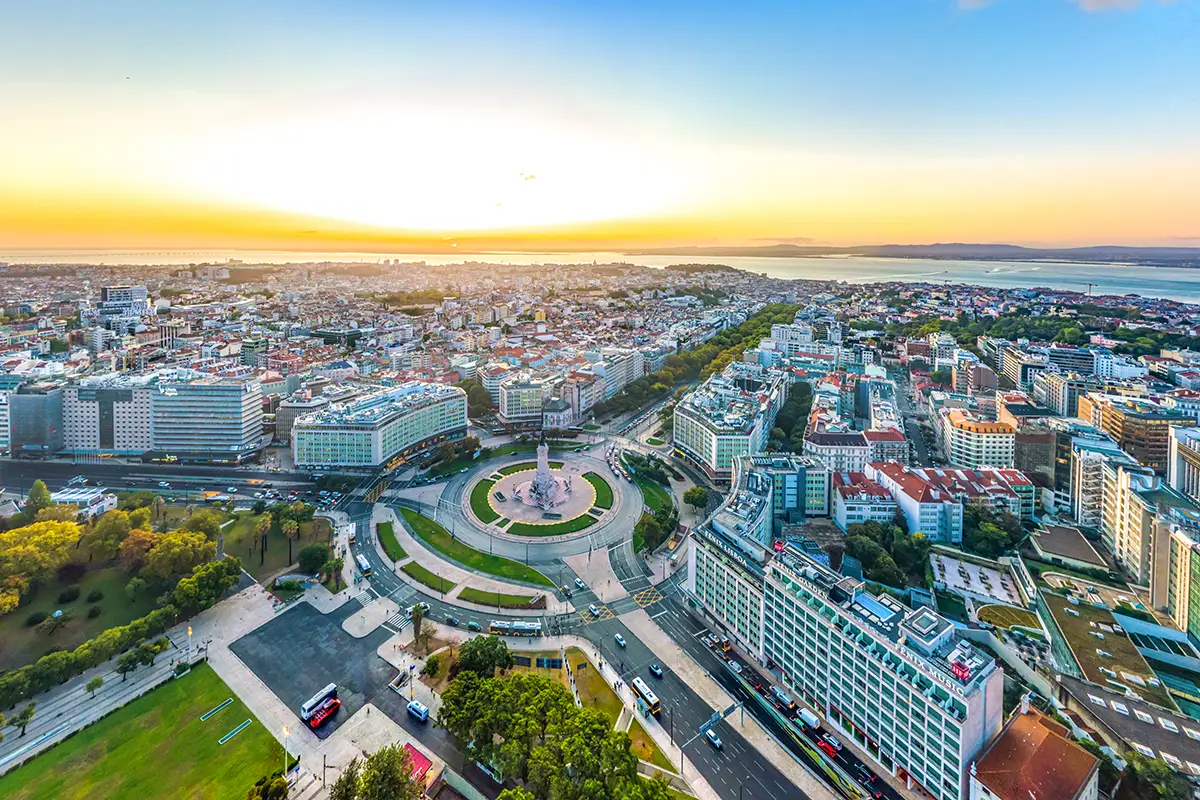
Reasons to Invest in Properties in Portugal
In the past decade, Portugal has emerged as an attractive financial destination, offering a thriving real estate market with a range of opportunities for investors. The growing demand for short and long-term rentals, fuelled by a thriving tourism industry and the growth of the foreign resident population—now representing 10% of the country's inhabitants—has created a favourable environment for property owners.
Thanks to its pro-immigration policies in recent years, Portugal has reversed its population decline. The current resident population is estimated at 10,639,726, reflecting an increase of 123,105 people from the 2022 figure of 10,516,621. This marks the fifth consecutive year of population growth, with over 1 million foreign nationals now calling Portugal their second home.
Due to the growth of the population in 2024, Portugal continues to demonstrate strong real estate market performance, attracting investors worldwide. Official data shows that property values more than doubled over the last decade, rising from the country’s average of €763 per square metre (€70.89 per square foot) in July 2014 to €1,736/m² (€161.28/ft²) as per data released on 22nd October 2024. This significant appreciation underscores the robust growth of Portugal's property market, making it a highly attractive investment destination for both local and foreign buyers.
For instance, the data shows the regions with the highest property prices also saw the most significant values in transactions involving both foreign and domestic buyers. The Greater Lisbon topped the list, with foreign purchasers paying a median of €4,958/m² per purchase, compared to €2,749/m² for domestic buyers—indicating that foreigners are purchasing more in the south rather than areas of the capital city. The Algarve followed, where foreign buyers paid €3,242/m², while locals spent €2,600/m² on average. In the Autonomous Region of Madeira, the median price reached €2,808/m² for foreign buyers and €2,000/m² for those from within Portugal. Likewise, in the Península de Setúbal, foreign transactions had a median of €2,333/m², while local buyers paid €2,041/m². The Great Porto area recorded median prices of €2,960/m² for foreign purchasers and €1,930/m² for domestic buyers.
In both Lisbon and Porto, property prices per square metre for foreign buyers were substantially higher than those for local buyers, exceeding them by 80.4% in Lisbon and 53.4% in Porto, since they choose better areas of the city to purchase.
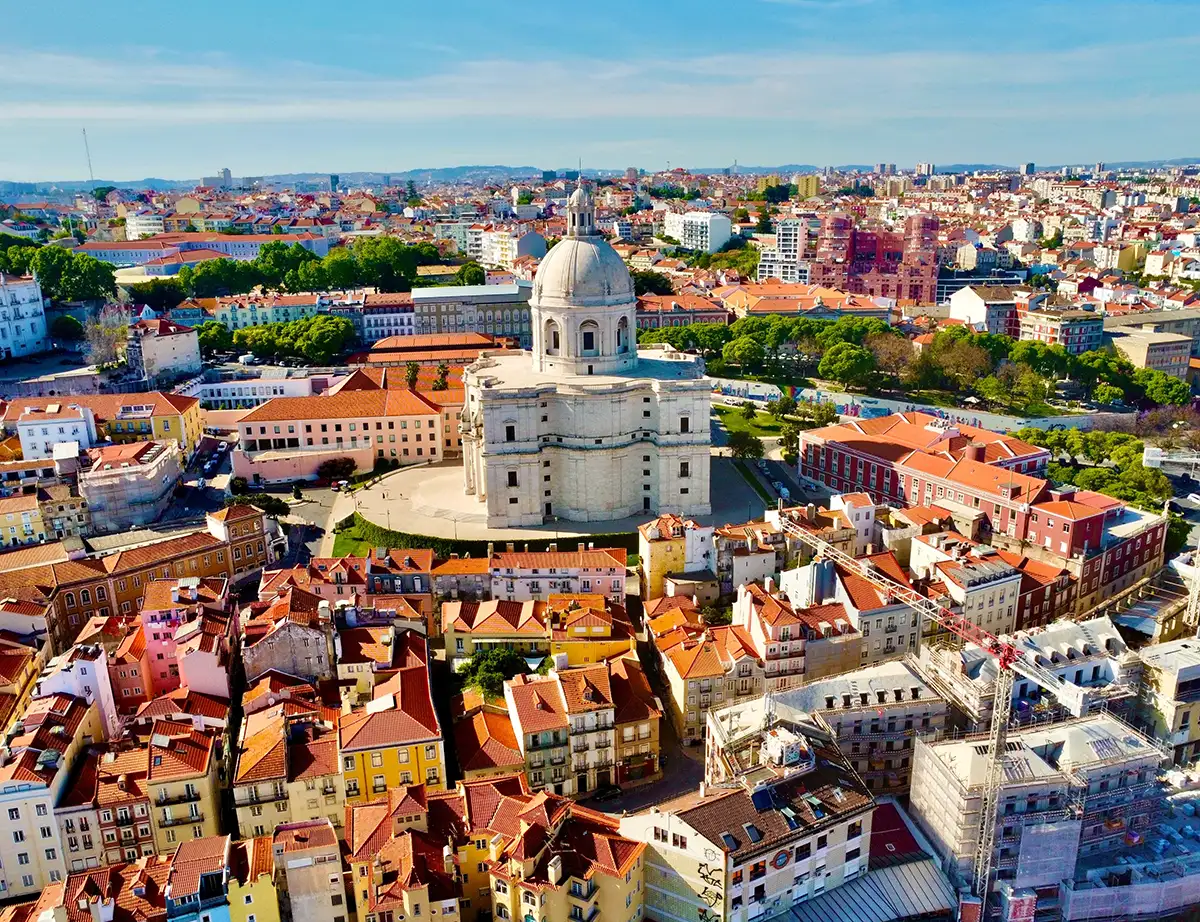
Average House Prices on the Portuguese Real Estate Market
Whether you are considering an investment opportunity, planning to purchase your dream home, or even retiring in Portugal, make sure that you are well-informed regarding the average house prices and the ever-evolving dynamics of the local housing market.
Real Estate 2023 Recap: Fallback and Recover
In 2023, the residential sector's market performance was notably affected by a challenging worldwide trending, characterised by economic slowdowns, political instability, rampant inflation, and unexpectedly high interest rates. This shift marked a departure from the strong performance of previous years, with the exception of 2020, which was influenced by the Covid-19 pandemic.
Additionally, local regulations including the Housing Bill "Mais Habitação", made in effect on 6th October 2023, and the termination of programmes such as the Golden Visa Real Estate option and the Non-Habitual Residence (NHR) tax regime, contributed to increased volatility in the residential market. As a result, there was a decline in both the volume and value of residential property sales compared to 2022. Although 2023 results fell short of expectations, the market responded quickly, boosting the figures for 2024.
Real Estate 2024: House Prices Accelerate
Since the beginning of the year, the recently elected Portuguese Government is trying to recover the Real Estate market from its fallback of 2023, by launching several policies that have already proved to be positive. One of these moves was the introduction of measures, such as the exemptions from IMT and Stamp Duty for first-time home purchases valued up to €316,772 for individuals aged 35 and under, as well as a public guarantee covering up to 15% of the purchase price, with a maximum limit of €450,000. These measures are designed to make homeownership more accessible for young people looking to buy a place to live in Portugal and continue the growth of the real estate market in the country.
All these initiatives prove that real estate investments in Portugal continue to yield impressive returns. According to the most recent official data from INE (Statistics Portugal) released on October 22, 2024, the median house price in Portugal reached €1,736 per square metre (€161.26 per square foot), marking an increase of 6.6% compared to the same period in 2023 (up from a 5.0% increase in the previous quarter). Year-on-year, the median house price rose in 21 of the 26 of the Portuguese sub-regions, with the Viseu Dão Lafões sub-region located in the north of the Central Region exhibiting the highest growth at 17.2%.
The five sub-regions with the highest median house prices—Metropolitan Region of Lisboa, the Algarve, Madeira Archipelago, Setúbal, and Metropolitan Region of Porto—also recorded the highest values in both categories of purchaser's tax residence (national and foreign). In the sub-regions of Lisbon and Porto, the median price per square metre of transactions conducted by purchasers with tax residence abroad exceeded those by purchasers with tax residence in the national territory by 80.4% and 53.4%, respectively.
The data also informs that, in the second quarter of 2024, house prices accelerated in 12 of the 24 municipalities with over 100,000 inhabitants, with Barcelos showing the highest increase of 16.6 percentage points. The municipalities with the highest house prices are Lisbon with €4,367/m² (€405.71/ft²), Cascais marking €3,994/m² (€371.06/ft²), Oeiras surprising with the number of €3,360/m² (€312.15/ft²), and finally Porto, marking €3,031/m² (€281.59/ft²).
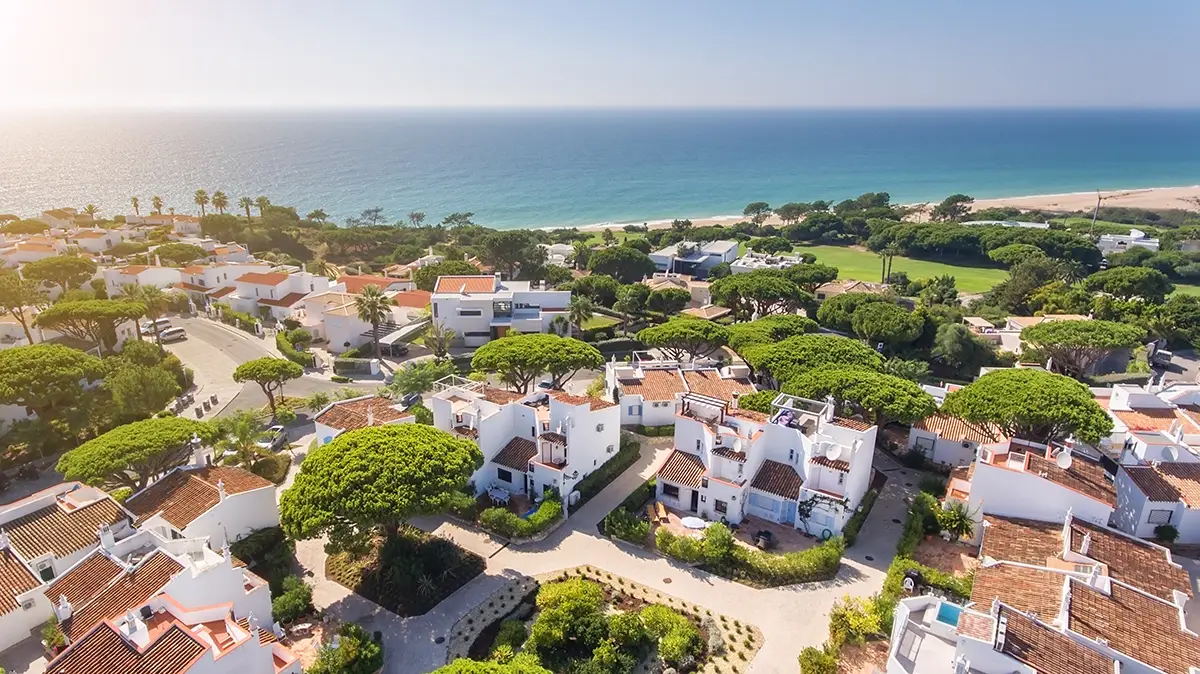
2024 Real Estate Portugal: Data and Statistics
According to the official data released by INE, the Housing Price Index reached 220.74 in the 2nd quarter of 2024, signalling a strong housing market. Transactions of housing units totalled €7,876,682 as of the 2nd quarter of 2024, reflecting robust activity in property sales.
Also, according to the Portuguese Statistics agency, in August 2024, there were 1,883 licenced buildings, showcasing ongoing growth in construction and development. Additionally, the median value per square metre of dwelling sales over the last 12 months stood at €1,661 as of the 2nd quarter of 2024. The total number of buildings in Portugal reached 3,573,416, based on the latest available data from the 2021 census. These figures mark the strong performance and attractive opportunities within Portugal's real estate sector.
Another important measurement of Real Estate relevance, the report of Deloitte’s national offices published in its Property Index. The report focuses on the housing development indicator, shows that Portugal experienced a year-on-year increase of 5.8% in the number of completed homes. The Index also informs that despite the market fluctuations and adjustments, property prices continue to face upward pressure in Portugal, driven by a structural shortage in housing alongside strong demand that exceeds the available supply.
In 2023, every city in Portugal saw increases in both asking and transaction prices for residential properties. Lisbon remains the region with the highest asking prices per square metre, with an average of €4,612 (€428.47 per square foot), +8.5% year-on-year comparison. While another region, the Algarve, boasts the highest average asking price per unit at around €609,560/m² (€56,630.03/ft²) +10.2% year-on-year.
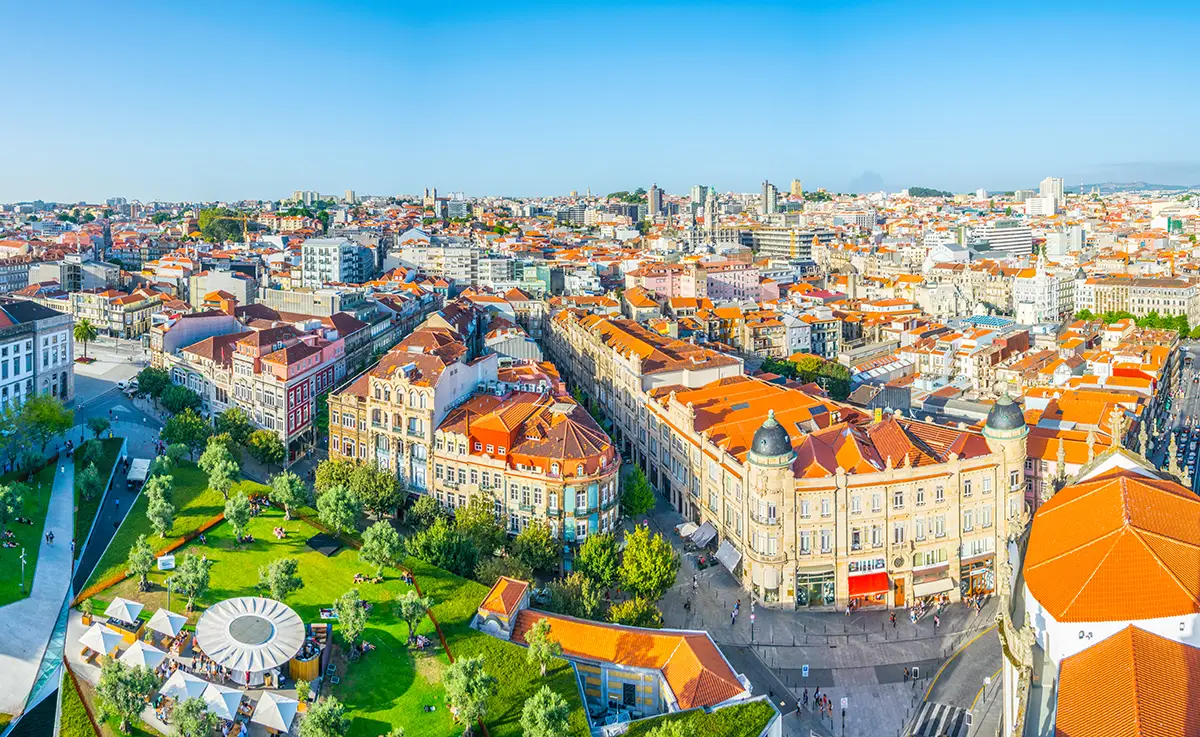
House Rental Yields in Portugal
It is important for investors to carefully specify their preferred location within the country, as rental yields, quality of life, and average incomes can vary significantly across regions. As in the real estate market there are favourable ventures and lucrative opportunities, collaborating with trusted local experts increases the chances of success and enables investors to maximize returns on their Portuguese real estate ventures.
In 2024, for instance, rental prices have also been increasing rapidly, largely due to the limited availability of properties for lease and rising demand, which stems from affordability challenges in the housing market.
The median house rental value per m2 of new lease agreements of dwellings in Portugal was €8.08 in the 2nd quarter of 2024, while it was €7.21 in 2023, highlighting a healthy rental market, as per data released by INE. Average monthly rents in Lisbon and Porto in 2023 were €15.22/m² (€1.41/ft²) and €11.72/m² (€1.09/ft²), respectively.
These figures indicate the potential for solid returns on investment in the Portuguese rental market. The government's commitment to promoting innovation and attracting foreign transactions further enhances the country’s and Lisbon's appeal as a destination for entrepreneurial ventures.
In EU countries, rental yields can be influenced by local regulations, economic conditions, market dynamics and quality of life between EU member countries. Factors such as language barriers, and higher cost of living may offset the advantages of higher average incomes, affecting disposable income and investment opportunities. In Portugal, we see an increase attractive market for rentals, due to the economic spotlight the country in under at the moment.

Long-Term Vs. Short-Term Rental in Portugal
Long-Term Rental
With stable income, reduced turnover, and a growing market, long-term rentals provide a solid foundation for investors seeking to maximize their returns and build a sustainable real estate portfolio.
According to Act No. 31/2012, measures have been put in place to boost the urban rental market. The law allows greater freedom in stipulating the rules regarding the duration of rental contracts, providing flexibility for both landlords and tenants. It also introduces a transitional regime for rental contracts established before the enactment of Law No. 6/2006.
From an investor's perspective, long-term rentals in Portugal offer promising potential, with a steady increase in prices on new leases contracts in Portugal. The average annual rental yield in major cities like Lisbon and Porto is estimated to be around 5% to 7%, making it an attractive option for investors seeking stable and consistent returns.
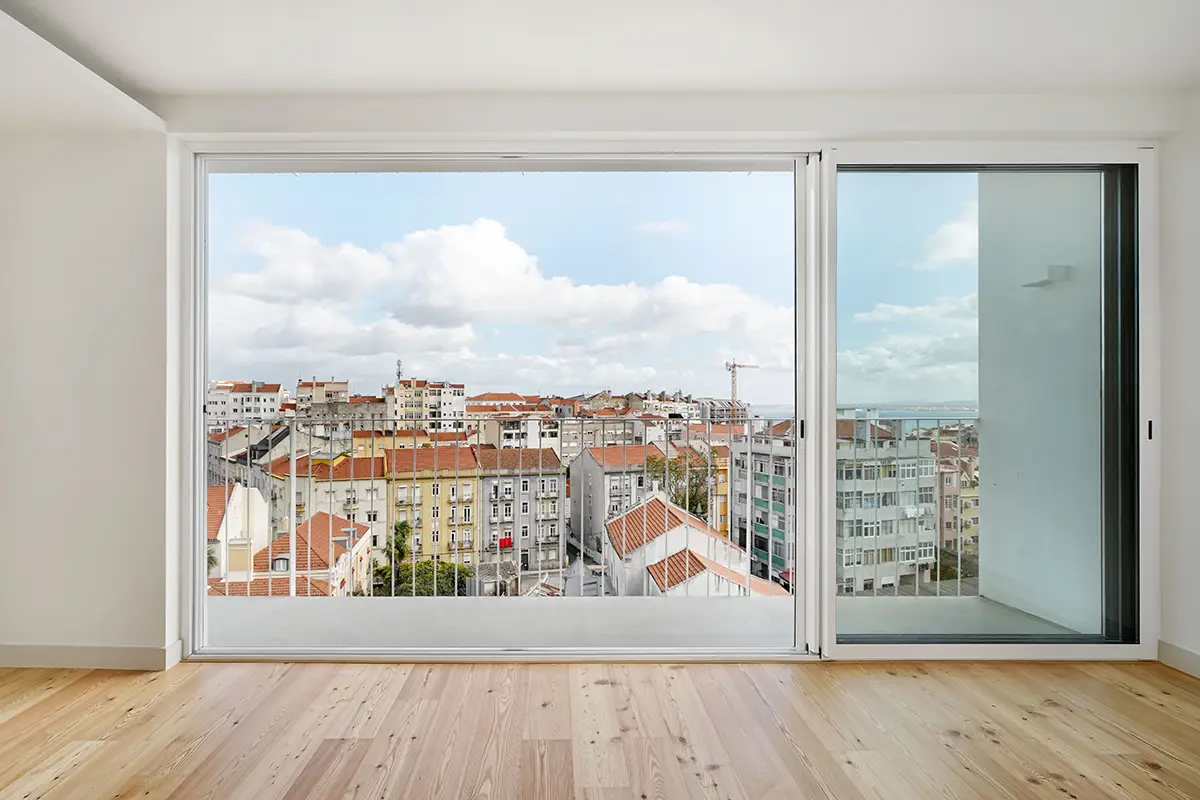
Short-Term Rental
The market’s demand for short-term rentals is robust, thanks to the country's popularity as a tourist destination. According to Decree Law 128/2014, the dynamics of the accommodation market led to the emergence and proliferation of new accommodation options. This trend highlighted the need for an updated and specific legal framework to regulate these new realities. The creation of a dedicated legal regime is essential to address the unique circumstances and fiscal implications associated with these evolving accommodation trends.
To investors, short-term rentals in Portugal offer a lucrative opportunity, since the average occupancy rate for short-term rentals in popular cities like Lisbon and Porto is consistently high, reaching up to 90% or more during peak seasons. In 2024, short-term rentals in Lisbon and Porto continued to thrive. According to Turismo de Portugal, short-term rental properties in Lisbon can generate an average annual gross yield of 5% to 8%, while in Porto, the range is between 6% and 10%.
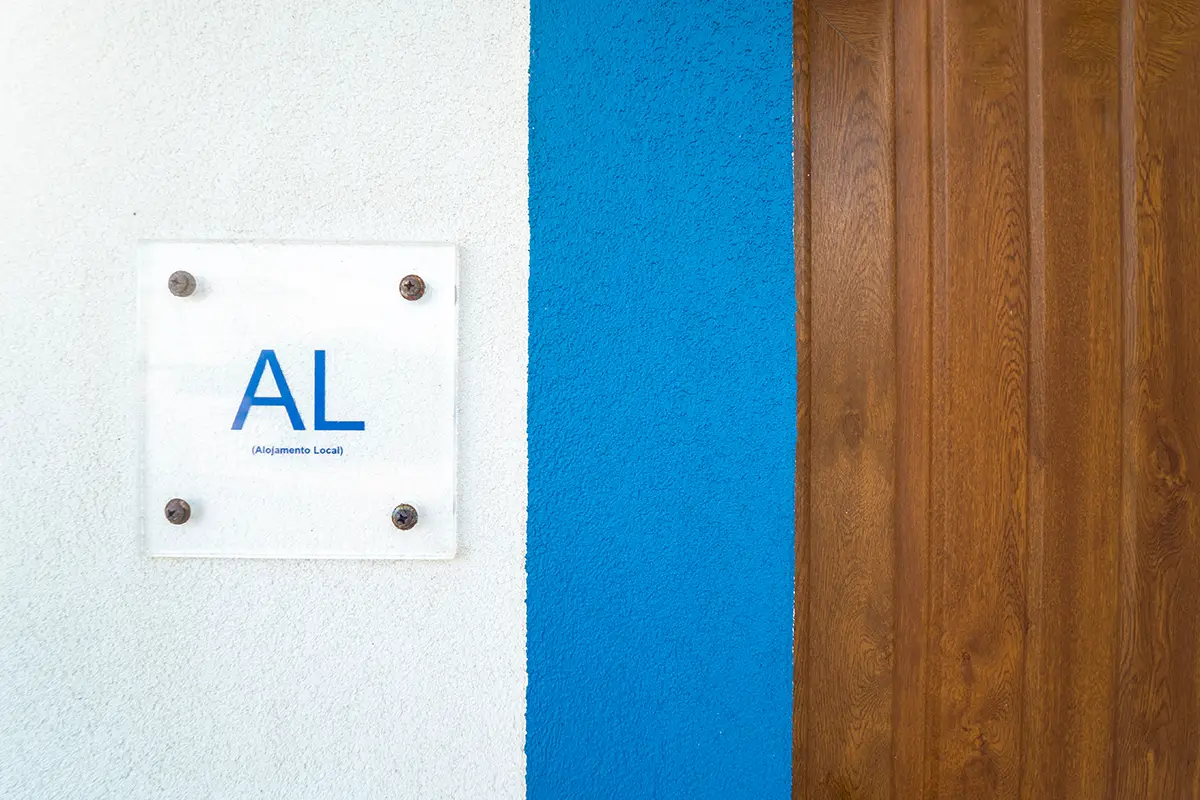
New Data Shows: Property Rents Could Skyrocket Up To 11% in 2025
Another important information released by INE on 22 October 2024 is regarding the increasing of the rents for January 2025. According to the Portuguese Agency, the rent may rise by 2.16%, based on the average inflation data. This increase applies to all rents, including those established before 1990, as long as 12 months have passed since the last adjustment. This rate is significantly lower than the 6.94% rise applied in 2024, which was the highest in 30 years due to inflationary pressures.
In 2023, the increase was capped at 2% by the government, otherwise, it would have been 5.43%. For a rent of €850, a 2.16% rise would mean an increase of roughly €18.36. However, if a landlord has not updated the rent over the past 3 years and opts to apply the accumulated coefficients from those years, the increase could exceed 11%, raising the rent to €947.20 (an increase of €97.20).
Current Portuguese legislation allows landlords to adjust rents using the coefficients from the past 3 years. Rents set before 1990 are also subject to adjustment based on inflation, meaning they too could see a 2.16% rise if more than 12 months have passed since the last 6.94% update.
Portugal Property Investment: In Which Area Should I Invest?
It is not difficult to understand that the main investment locations in Portugal include the capital city of Lisbon, and the regions around the Metropolitan Area of Porto, and the Algarve region. These locations represent a lucrative opportunity in Portugal's real estate sector, and as showed before in this article, they represent the highest increase in property prices in Portugal as of 2024.
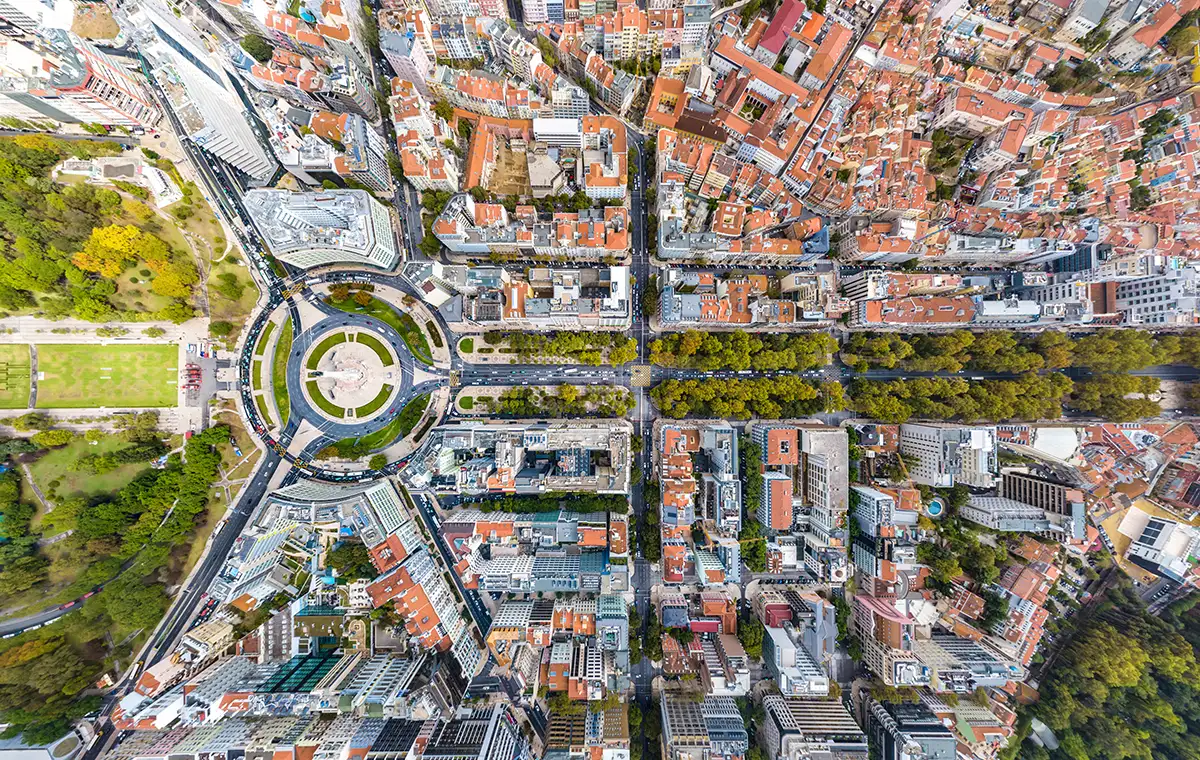
Lisbon Metropolitan Region
In the 12-month period from July 2023 to June 2024, several Lisbon areas stood out for having the highest median housing prices in the country, surpassing €6,000 per square metre in some areas. Leading the list were Santo António (€6,315/m²), where the famous Avenida da Liberdade is located, Marvila (€6,044/m²), Misericórdia (€5,398/m²), Estrela (€5,221/m²), and Santa Maria Maior (€5,037/m²). All of these districts not only recorded prices well above the Lisbon average (€4,203/m²), but also showed growth rates higher than the city's overall rate of 3.0% when compared to the same period in the previous year.
Other notable areas with high median prices and significant growth include Areeiro (€4,971/m², 22.1%), Belém (€4,815/m², 10.3%), Arroios (€4,328/m², 7.0%), and Alcântara (€4,313/m², 7.8%). Conversely, some areas recorded lower prices and growth rates than the Lisbon average, such as São Vicente (€4,146/m², -1.7%), Ajuda (€4,000/m², -1.7%), Carnide (€3,991/m², -4.1%), Penha de França (€3,614/m², 2.7%), and Olivais (€3,500/m², 0.8%).
The most significant price increase was seen in Santa Clara, where median prices surged by 25.8%, reaching €3,267/m², demonstrating strong potential for future growth in this emerging area.

Read more:
Lisbon Property Prices On The Rise Despite The Golden Visa End In Real Estate
Best Neighbourhoods in Lisbon: Main Attributes and Properties' Style
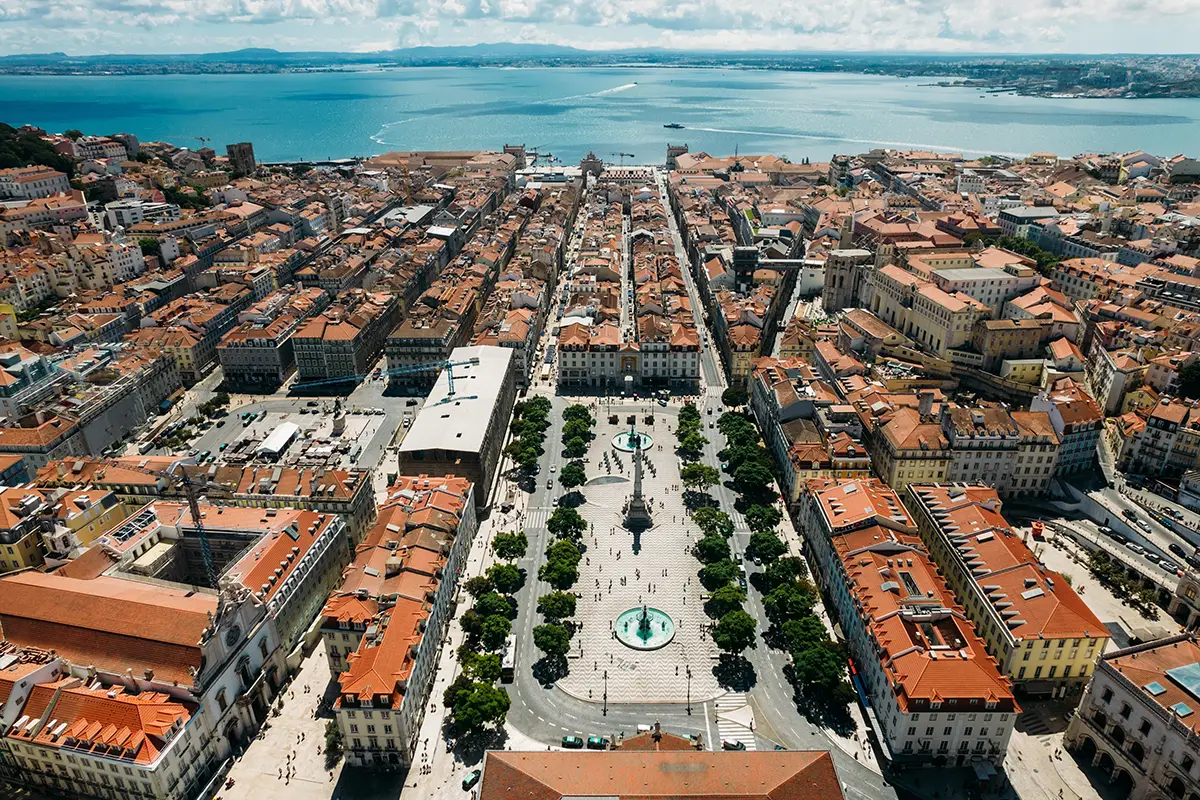
Porto Metropolitan Region
In the 12-month period from July 2023 to June 2024, several districts in Porto recorded median housing prices above the city average of €2,992 per square metre, although their annual growth rates were lower than the city’s overall increase of 11.5%. The União de Freguesias of Aldoar, Foz do Douro, and Nevogilde led with a median price of €3,979/m² and a growth rate of 7.0%, followed by the União de Freguesias of Cedofeita, Santo Ildefonso, Sé, Miragaia, São Nicolau, and Vitória at €3,232/m² with a 3.7% rise, and the União de Freguesias of Lordelo do Ouro and Massarelos with €3,016/m² and a modest 0.3% growth.

Campanhã saw the highest price increase across Porto’s districts, with a significant 51.9% rise, bringing the median price to €3,082/m². This sharp increase was largely driven by new housing developments, and to the new train and bus station of Campanhã, currently the main hub of Porto. The area accounted for 49.1% of property sales during this period, compared to 25.7% in the previous year. New properties in Campanhã had a median price of €3,403/m².
Bonfim registered a median price below the Porto average, at €2,892/m², but saw a higher growth rate of 17.8%. Meanwhile, Paranhos (€2,884/m², 9.4%) and Ramalde (€2,722/m², 9.6%) both had median prices and annual growth rates below those of the city as a whole, but still remain competitive in the market.
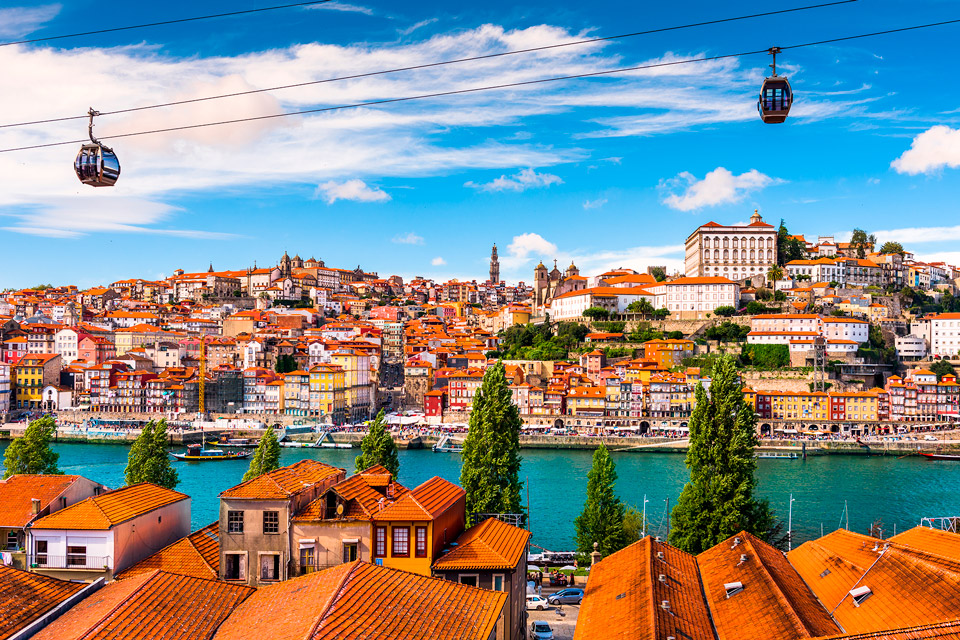
The Algarve Region
The Algarve is a region that attracts tourists from all over the world, making it an ideal location for short-term rental properties. Many facts make the south of Portugal a great place for a guaranteed return on investment, including its nature landscape and touristic attractiveness. The Portuguese Golden Triangle (Vilamoura, Almancil and Quinta do Lago) is an investor’s paradise, marking a great increase of properties price. The Algarve sub-region's house prices also remained above the national average, €2,735/m², but some cities marked a high price, with Loulé registering €3 273/m², while Lagos keeps on €3 307/m² and Faro, the district capital marks €2 426/m².
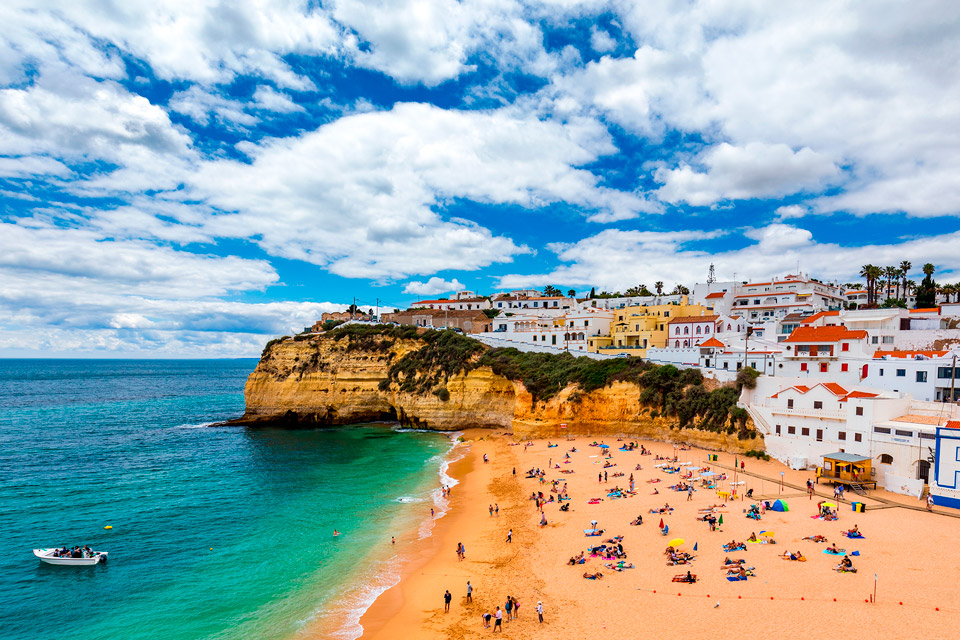
See all Proprieties Available:
Property for sale in Lisbon
Property for sale in Porto
Property for sale in Algarve
Portuguese Real Estate Investment: Taxes & Fees
By understanding the taxes and fees involved, investors can make informed decisions. For Propriety Acquisition, the costs are Property Transfer Tax, levied on property transfers, with rates varying based on property value and buyer status; the Annual Property Tax, a local tax based on property value; the Stamp Duty (IS), applied to property deeds and contracts.
Other important taxes and fees to keep in mind: Property Management Fees; Capital Gains Tax; Financing and Mortgage Costs; Currency Exchange Considerations; Property Insurance; Market Research and Due Diligence. For an overview of the Portuguese Tax System and useful forms, you can find all information on the Portuguese Tax Authority website.
Portugal Residency by Investment Programmes: Is Real Estate Still an Available Option?
Foreign investors can leverage specific programmes designed to facilitate their journey and secure residency in Portugal, opening a pathway to the citizenship. Normally known as Residency by Investment programmes, they require a minimum amount of investment into the country’s economy.
Golden Visa: Still Available in 2024
The Golden Visa is an economic initiative used by countries to attract foreign investment, particularly helpful for nations facing economic challenges. Designed to strengthen and revitalise economies, the programme has had a significant and largely positive impact on Portugal's diverse real estate market offerings.
Introduced in 2012, Portugal's Golden Visa Programme allows non-EU citizens to obtain residency permits in exchange for a qualifying investment, formerly involving real estate, with a commitment period of at least six years. For more than a decade, the Golden Visa in Portugal has injected over €7 billion into the Portuguese economy, mostly due to its Real Estate investment option.
However, on 6th October 2023, the programme underwent substantial changes when the Housing Bill (Mais Habitação) was enacted into law. This legislation discontinued the real estate investment option. Under the new law, the Portuguese Golden Visa no longer grants residency status through real estate investments.
However, investors seeking the Portuguese Golden Visa have several alternative pathways beyond real estate. One prominent option is investing at least €500,000 in selected and regulated investment funds that focus on sectors like private equity, venture capital, manufacturing, hospitality, or sports and media assets.
Other routes include creating ten registered job positions in Portugal for a minimum of 5 years or establishing a company with at least 5 permanent jobs for a minimum of three years, also requiring a €500,000 investment. Additionally, making a minimum donation of €250,000 to arts or cultural heritage projects, or contributing with a €500,000 donation to scientific research institutions, can qualify investors for the Golden Visa.

D2 Visa: A New Alternative Solution
The Portuguese D2 Visa is a Residency by Investment programme that serves as an alternative to the Golden Visa scheme. Designed to attract entrepreneurs and high-net-worth individuals, it offers a pathway to Portuguese citizenship by encouraging the establishment of new businesses or the expansion of existing ones within Portugal.
Currently, the D2 Visa is considered an efficient and cost-effective means of obtaining residency in the European Union. It provides numerous benefits, including family reunification and visa-free travel throughout the Schengen Area, making it an appealing option for those seeking EU citizenship.

Buying & Investing in Real Estate in Portugal as a Foreigner - What Is Required?
Foreigners planning to purchase a property must obtain a Portuguese Tax Identification Number (NIF) from the local tax office. This number is required during the property acquisition process. The NIF is essential not only for property transactions but also for various financial activities in Portugal, such as opening a bank account, signing utility contracts, and paying taxes.
Obtaining a NIF is a straightforward process; it usually requires presenting valid identification, such as a passport, and can often be done with the assistance of a local lawyer or real estate agent. Although, for overseas clients, Portugal Homes offers its tax representation service within its After Sales Department, so the whole process can be done without harass to the buyer.
Additionally, foreign buyers should be aware of other critical steps in the process of purchasing real estate in Portugal. This includes choosing a suitable legal representative who can guide them through the local laws, property rights, and any potential restrictions on foreign ownership. It is important to conduct thorough due diligence on the property, which includes verifying ownership, checking for any outstanding debts or legal issues, and understanding the zoning regulations.
Buyers may also need to open a Portuguese bank account to facilitate transactions and manage ongoing expenses, such as property taxes and maintenance fees. All those services can be obtained through Portugal Homes specialist team, with exclusive dedication to the client's needs.
Read more:
Buying Property in Portugal as a Foreigner in 2025: The Ultimate Guide
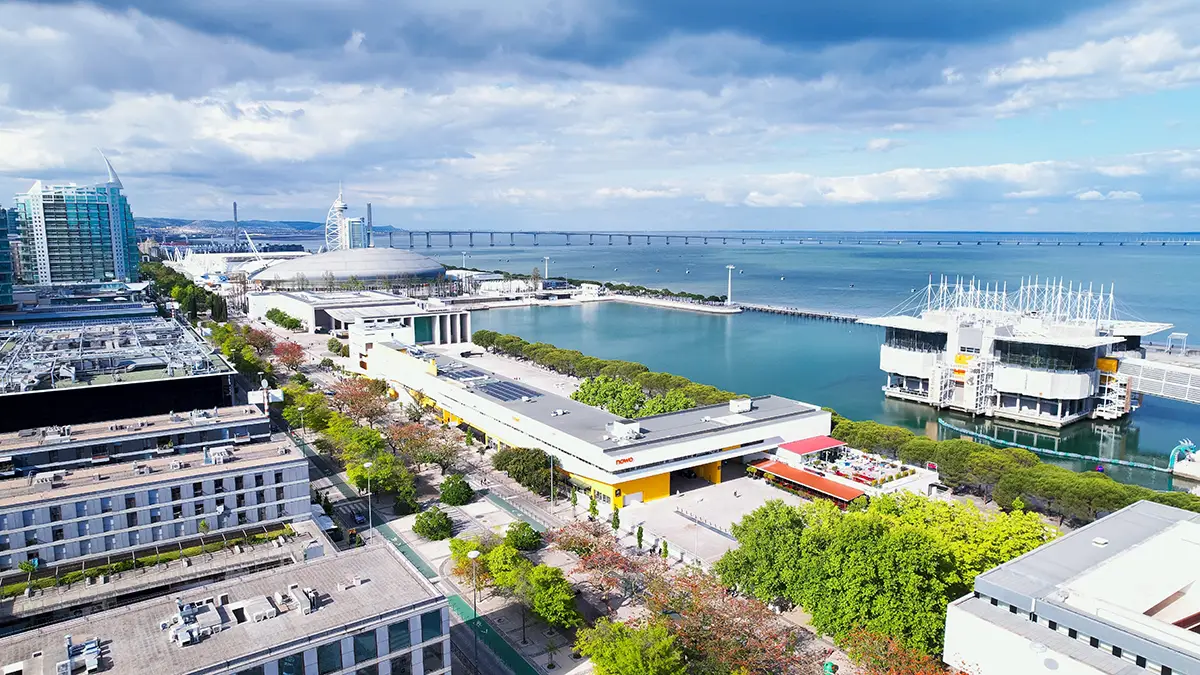
Portugal Property Investment: Is it Worth it?
The country's strong rental market provides consistent income potential, supported by appealing taxation policies, and a stable real estate market. Considering the quality of life, rental income potential, and future growth prospects, Portugal is an appealing destination for property investors. By staying informed and working with local experts, they can maximise their returns in the Portuguese market.
Before you make your decision, consult Portugal Homes. Our team of real estate professionals is dedicated to helping you find the investment that better suits your demands. With a distinguished and varied portfolio, Portugal Homes will surely exceed your expectations and provide you with guidance through the process.
Get in touch with us by submitting the form below - do not miss out on the best Golden Visa and Property investment options.






